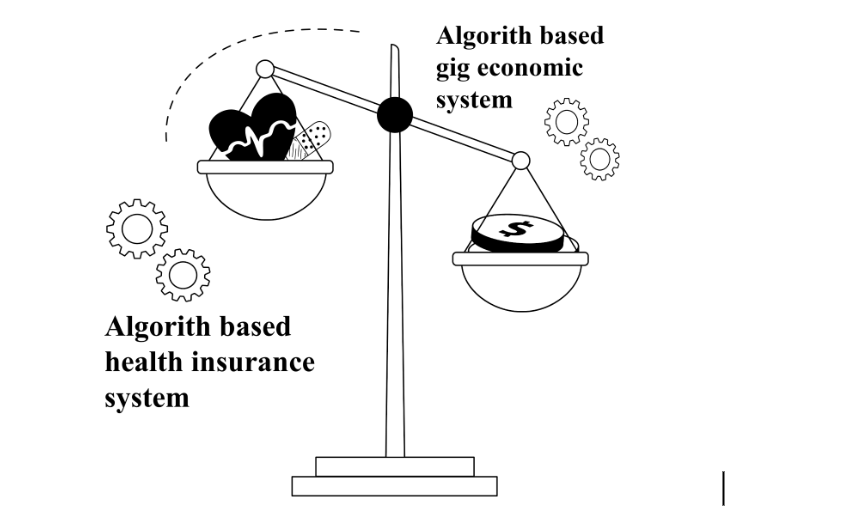ICOH letter 2023
Algorithm dependent tax and insurance for gig economy workers
View original SlidePosted by jinha on Jan. 1, 2024, 4:41 p.m.
The use of algorithms and automation in the gig economy can lead to negative impacts on gig workers' health, including trade-off between economic success and worker health, uncertainty of effort-reward, unreliable assessment of job performance, and incorrect attribution of responsibility. An algorithm-dependent insurance system can help mitigate these impacts by providing financial support and access to healthcare services for gig workers. This insurance system could be funded through a tax on companies using algorithms or automation, a social insurance program, or a combination of funding sources. The main stakeholders in this system are gig workers, platform companies, government, healthcare providers, insurance providers, and researchers. Researchers can play a role in establishing the goal of health equity for gig workers by conducting studies and gathering data on the health impacts of algorithms and the effectiveness of funding mechanisms for insurance systems. Additionally, policymakers and government officials can take steps to implement the algorithm-dependent insurance system and enforce regulations to ensure the health and safety of gig workers.
